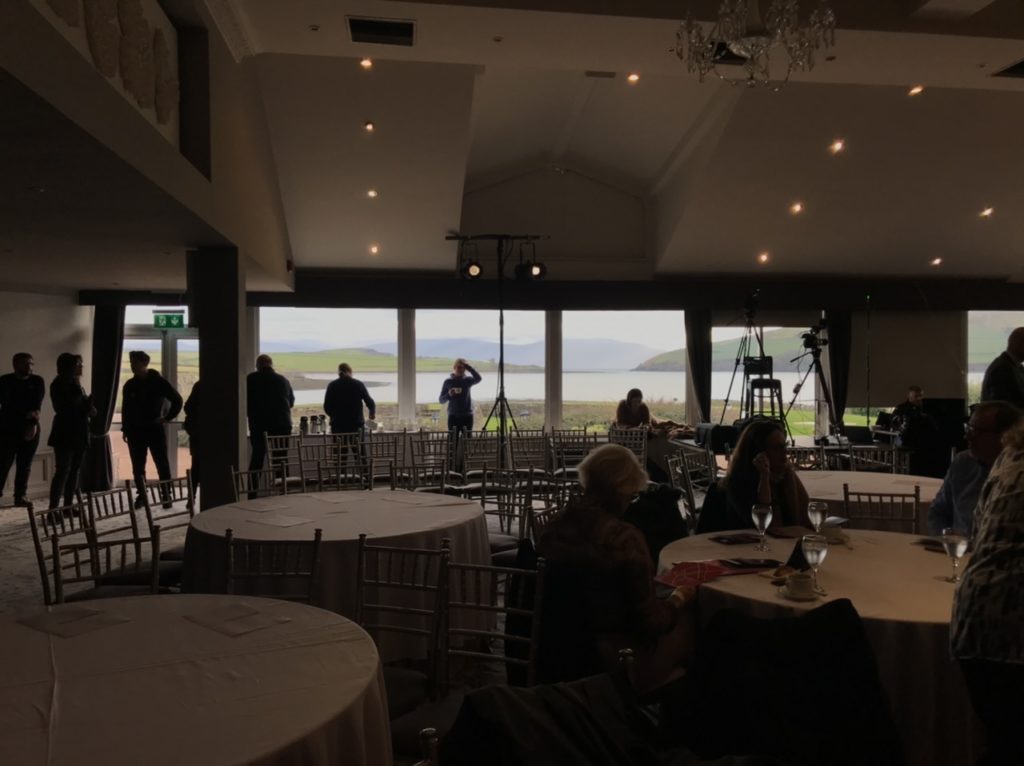This blog is now also available as a once-a-day email. If you think this might work better for you why not subscribe here? (It’s free and there’s a 1-click unsubscribe if you subsequently decide you need to prune your inbox!) One email a day, in your inbox at 07:00 every morning.
Quote of the day
Facts are stubborn things. Statistics are pliable.
- Mark Twain
Spring in a time of contagion
In our garden this afternoon.
What our contagion fables are really about
Like me, the historian Jill Lepore has also been reading the literature of pandemics. Unlike me, she is genuinely erudite. “The literature of contagion is vile”, she writes in the New Yorker.
A plague is like a lobotomy. It cuts away the higher realms, the loftiest capacities of humanity, and leaves only the animal. “Farewell to the giant powers of man,” Mary Shelley wrote in “The Last Man,” in 1826, after a disease has ravaged the world. “Farewell to the arts,—to eloquence.” Every story of epidemic is a story of illiteracy, language made powerless, man made brute.
Lepore is one of those annoying academics who seems to have read everything. The list of plague-centred works she surveys is striking (and most of it was new to me). It includes: Edgar Allan Poe’s Masque of the Red Death (1842); Jack London’s The Scarlet Plague (1912); Albert Camus’s the Plague (1947); José Saramago’s Blindness (1995); and Stephen King’s Stand (2011).
But the big thing I learned is that Mary Shelley wrote an astonishingly prescient novel, The Last Man which was published in 1826 (not 1862, as I originally wrote). The story is set in the twenty-first century, and
is the first major novel to imagine the extinction of the human race by way of a global pandemic. Shelley published it at the age of twenty-nine, after nearly everyone she loved had died, leaving her, as she put it, “the last relic of a beloved race, my companions, extinct before me.” The book’s narrator begins as a poor and uneducated English shepherd: primitive man, violent and lawless, even monstrous. Cultivated by a nobleman and awakened to learning—“An earnest love of knowledge . . . caused me to pass days and nights in reading and study”—he is elevated by the Enlightenment and becomes a scholar, a defender of liberty, a republican, and a citizen of the world.
Then, in the year 2092, the plague arrives, ravaging first Constantinople. Year after year, the pestilence dies away every winter (“a general and never-failing physician”), and returns every spring, more virulent, more widespread. It reaches across mountains, it spreads over oceans. The sun rises, black: a sign of doom. “Through Asia, from the banks of the Nile to the shores of the Caspian, from the Hellespont even to the sea of Oman, a sudden panic was driven,” Shelley wrote. “The men filled the mosques; the women, veiled, hastened to the tombs, and carried offerings to the dead, thus to preserve the living.” The nature of the pestilence remains mysterious. “It was called an epidemic. But the grand question was still unsettled of how this epidemic was generated and increased.” Not understanding its operation and full of false confidence, legislators hesitate to act. “England was still secure. France, Germany, Italy and Spain, were interposed, walls yet without a breach, between us and the plague.” Then come reports of entire nations, destroyed and depopulated. “The vast cities of America, the fertile plains of Hindostan, the crowded abodes of the Chinese, are menaced with utter ruin.” The fearful turn to history too late, and find in its pages, even in the pages of the Decameron, the wrong lesson: “We called to mind the plague of 1348, when it was calculated that a third of mankind had been destroyed. As yet western Europe was uninfected; would it always be so?” It would not always be so. Inevitably, the plague comes, at last, to England, but by then the healthy have nowhere left to go, because, in the final terror of pandemic, there is “no refuge on earth”: “All the world has the plague!”
Just like Coronavirus, in a way. The great thing about being an historian is that you know that there’s nothing new under the sun.
Parliamentary sovereignty = parliamentary dictatorship
The LRB has a thoughtful review by Neal Ascherson of Richard Norton-Taylor’s The State of Secrecy: Spies and the Media in Britain, which opens with a succinct summary of the UK’s ramshackle ‘constitution’:
The structure of the ‘British’ state is still essentially monarchical. Constitutionally, the rest of the democratic world has moved on, adopting variants of the Enlightenment notion of popular sovereignty. Power resides in theory with the people, whose communities lease upwards only those functions they cannot exercise themselves. But in Britain, its archaisms only lightly reformed, power still flows downwards. The absurd doctrine of parliamentary sovereignty – that weird English scrap of parchment – in effect means parliamentary absolutism, a hasty 1689 transfer from the divine right of kings. We don’t have ‘inalienable rights’, but are allowed to vote and speak freely only because the government, through Parliament, generously lends some of its power to its subjects.
Richard Norton-Taylor has spent a lifetime (much of it as the Guardian‘s National-Security editor) poking holes in the obsessive secrecy that characterizes the British state, and Ascherson does a good job of surveying the battles of the mid-20th century and the early 21st. The story, he says,
is all part of a momentous contest over constitutional liberty, a battle only now reaching full intensity. It’s a generation since judicial review began to pierce moth holes in government decisions. But the worn tweed blanket of parliamentary sovereignty – better described as Cabinet absolutism – developed a large rent last year when the Supreme Court struck down Johnson’s attempt to prorogue Parliament. Panic broke out on the authoritarian right. The law had forgotten its place, they cried, and was advancing uninvited into politics. It must at all costs be pushed back. Suella Braverman, the new Brexiteer attorney general previously known for her hatred of the Human Rights Act, now proclaims that ‘we must take back control not only from the EU but from the judiciary … the political has been captured by the legal.’
This is the language of a pre-Enlightenment government intolerant of opposition, refusing to acknowledge that power can reside and be legitimate outside the executive. It is, in short, monarchy-speak. And as the war begins between divine-right concepts of authority and the notion – now increasingly implied by English jurists – of the supremacy of the law to which prime ministers and parliaments must answer, the control of information will become a decisive battlefield. As Norton-Taylor warns, this government will fight hard to protect the secrecy of its members, spy agencies and special forces, and it will fight dirty.
Yep. And a Johnson government will have few scruples about cracking down as a newly-‘liberated’ UK goes broke.



